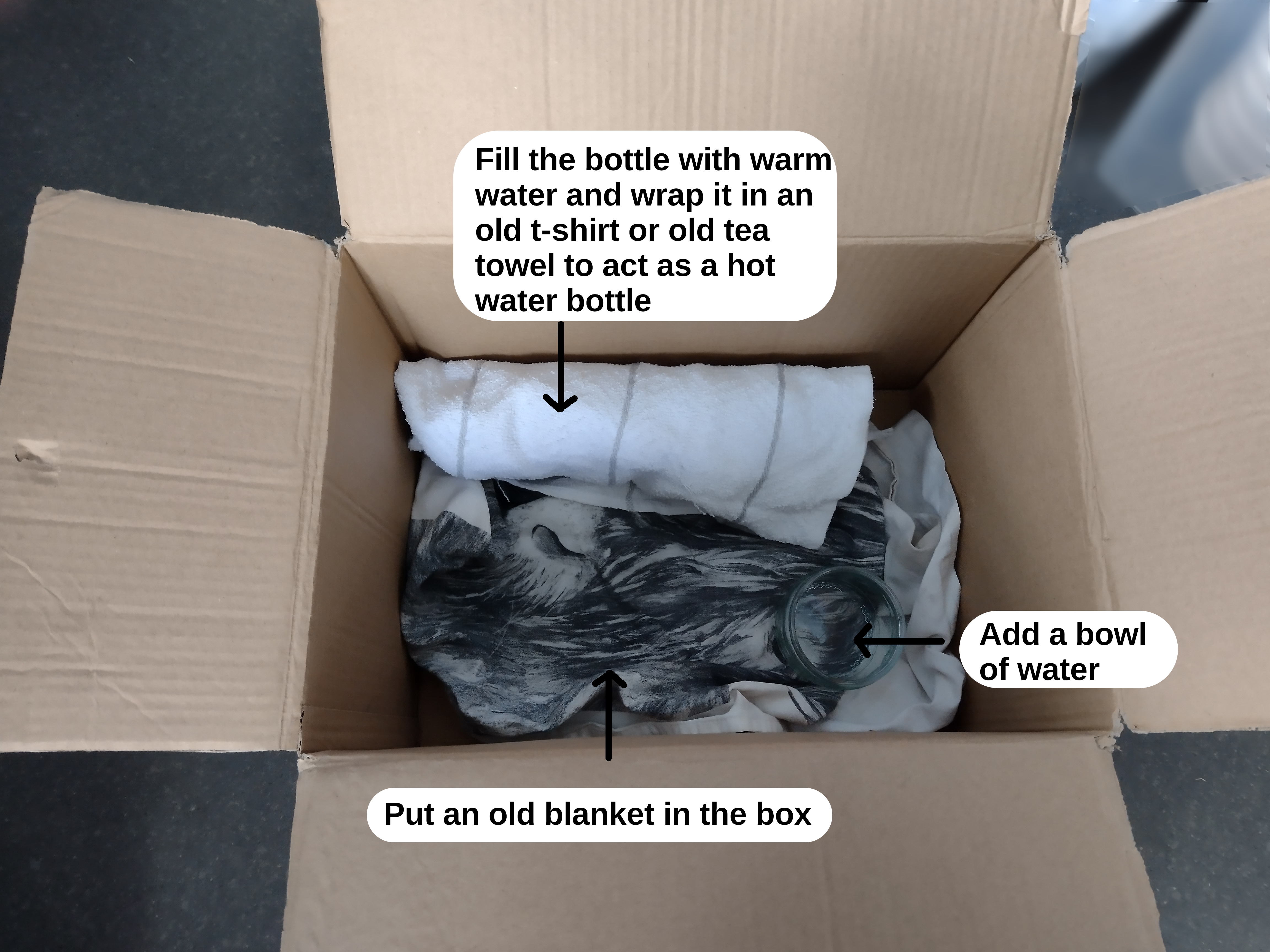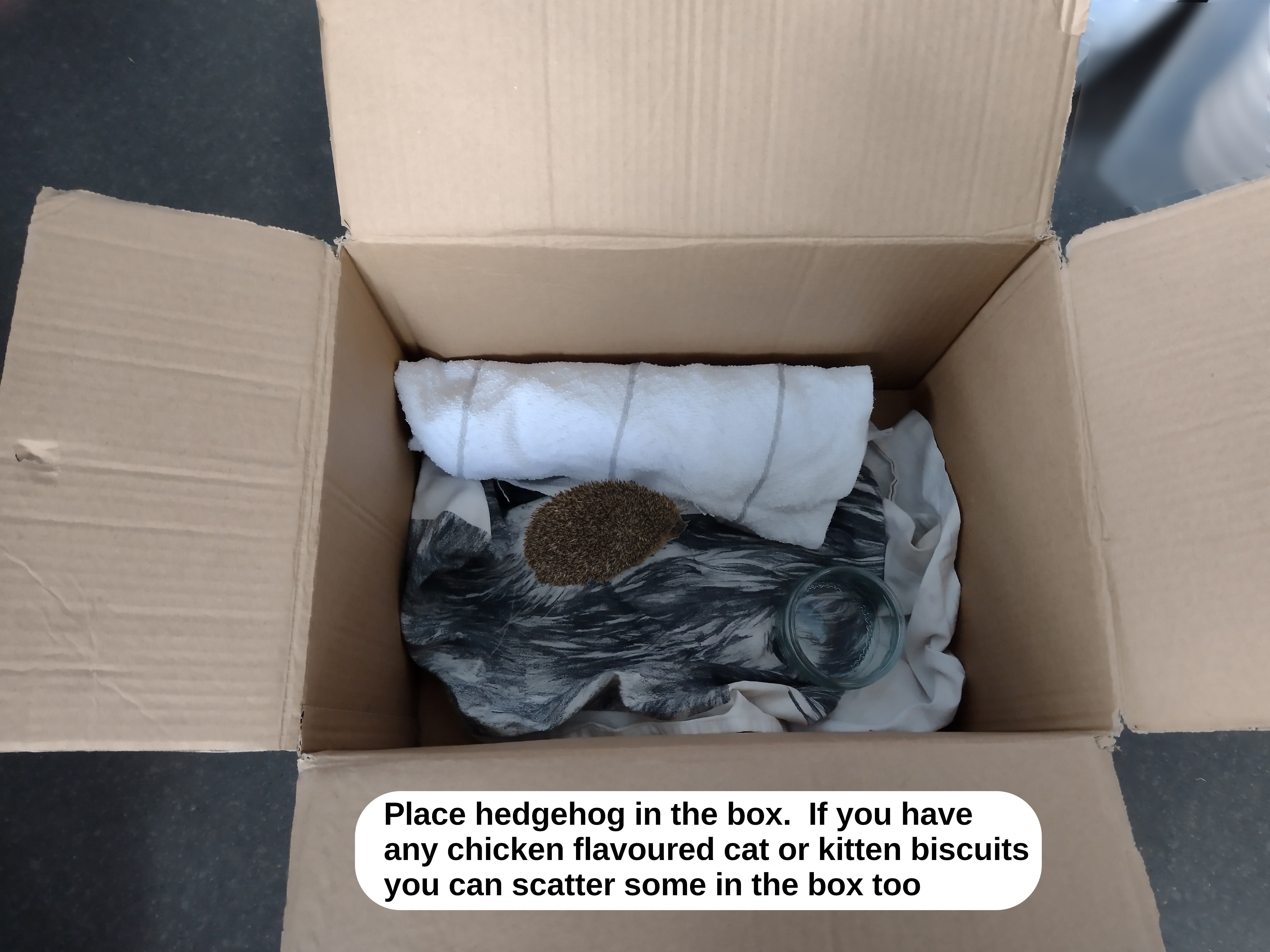

If you are taking a hedgehog to a rescue you will have already spoken to them and they will have given you the address and directions of how to get to the rescue.
The rescue will ask you questions about where it was found and when and what has made you concerned about it.
We need to know where you found the hedgehog and whether it was in the daytime or at night and if it was at your home or in a park etc. If it's injured we'll ask if you have any ideas about what might have happened.

Sadly we can't save them all. Sometimes it's obvious what the problem is - injury or thin or dehydrated - and we know exactly what we need to do to help either by treating them at the rescue or getting them to a vet if the problem or injury is severe and not something we can treat.
It's very likely that we will keep the hedgehog in, maybe for a week or more, whilst we make sure that it is fit and well enough to be returned to where it was found. Hedgehogs need to go back to where they were living if possible. They have a home there and they know where the food is and where dangers lurk. Even babies will have been out on discovery expeditions with their mum who will have shown them the best places to find tasty beetles and caterpillars.
We are happy for you to contact us to ask how the hedgehog is doing. A text or message via messenger is preferable to a call as it gives us the opportunity to check our records before replying to you.
We will do whatever we can giving painkillers and fluids if necessary and treating for internal parasites, removing ticks, fleas and fly eggs but a weak sickly hedgehog may still die suddenly.
We will always contact you to let you know if the hedgehog you brought to us has died or if it needs surgery that means it cannot be returned to the wild. Hedgehogs with only 3 legs (known as tripods) or blind hedgehogs need to be kept in a secure garden which they cannot get out from for the rest of their lives.


